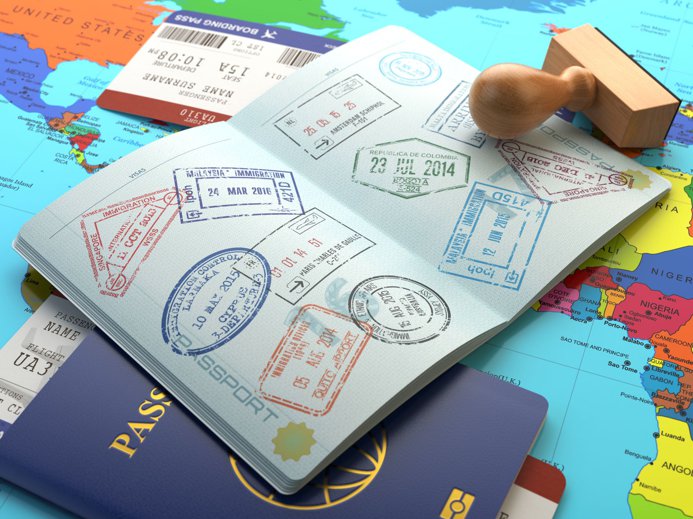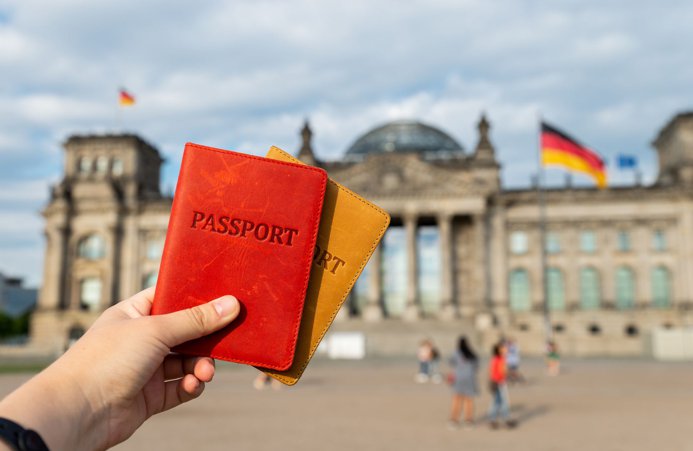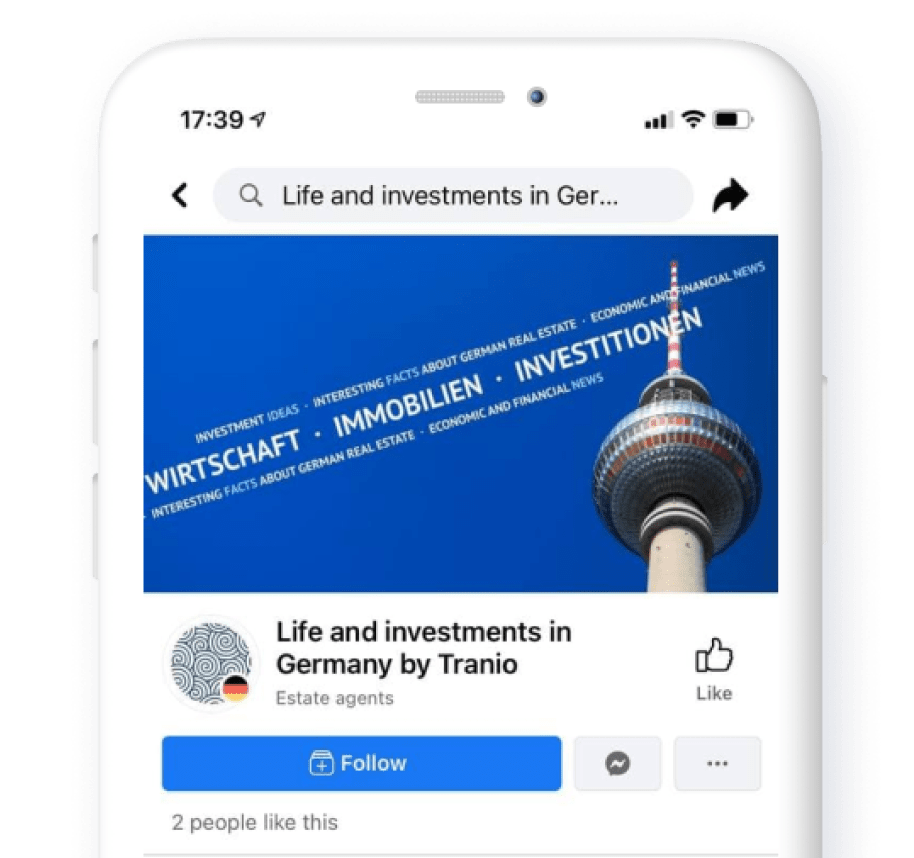Residence permit in Germany

The presence of foreign citizens in Germany is regulated by the Law on residence, employment and integration of foreign citizens in Germany. Buying real estate does not grant foreigners the right to temporary residence.
Visas
Germany is a member of the Schengen Area. Nationals of non-Schengen countries are permitted to enter Germany with a Schengen or national visa.
Schengen visa
A Schengen visa is a short-stay “C” visa that can be single, double or multi-entry and allows the holder to enter a Schengen country for a maximum of 90 days every 6 months.
Depending on the purpose of travel, a Schengen visa may be issued for tourism, visit, business, studies, sports, medical reasons, transit, scientific or cultural purposes. See the list of the documents required for each visa type on the official website of a visa application centre for Germany.
Property buyers most often obtain tourist visas. During the tourist visa validity period, they usually have enough time to open a bank account, view the chosen property and collect all the documents necessary for the purchase and maintenance of the property.
Tourist visa applications are filed at German visa application centres or consulates in the applicant’s home country. The applicant books an appointment online on the website of the centre or directly contacts the consulate but it might take longer to obtain a visa in the latter case. An appointment in the consulate is scheduled on the website of a German diplomatic mission.
An application must be filed not earlier than six months and not later than three business days before travelling (for expedited visa processing). The standard visa processing period is ten days. An applicant should pay a visa fee and a service fee of the visa centre. However, the service fee is not paid if the documents are filed with the consulate.
Note: The “C” category tourist visa can be obtained to visit the property purchased in Germany. The documents proving the title of ownership in Germany are required for such visa and can be an extract from the land register (known as “Grundbuch”) up to six months old or a copy of the purchase agreement.

National visa
A national visa (“D” category) is a long-term visa that allows to stay in the country for more than 90 days per half-year. A “D” visa is obtained for the purpose of work, studies, medical treatment, or family reunification. The documents required to apply for a visa on the above grounds are listed on the website of a German diplomatic mission.
An applicant files the application for a German visa and passes an interview at a German consulate in the applicant’s home country.
The processing time for a national visa lasts from several days to months depending on the purpose of travel to Germany. The longest wait time is required for an employment-based visa: the vacant position is checked with the employment authority, and the degree is reviewed for compliance with the German standards.
A foreign worker entering the country need to register at the Civil Registry (Einwohnermeldeamt) and schedule an appointment at the Federal Foreigners Office (Auswärtiges Amt).
The visa fee is €75. The typical validity period for national visas is 3–6 months. A visa for the purpose of studies is issued for one year. A “D” visa is valid only for Germany, but allows to stay in the other Schengen countries for up to 90 days within half-year.
— Are there visa benefits for property owners in Germany?
— Not officially, though, it is easier for them to obtain a 5-year multi-entry Schengen visa.
Temporary residence permit

A temporary residence permit (Aufenthaltserlaubnis) gives holders the right to stay in Germany for at least six months and up to 2–3 years depending on the purpose of stay. The most common grounds for residence include work, opening a business, studies, marriage to a German citizen or a foreign residence permit holder and humanitarian reasons.
Temporary residence applications are filed at the Federal Foreigners Office. The applicant must enter the country on a national visa issued for the same purpose of stay as the residence permit requests. The permit costs €100–110, while extensions cost €65–80.
Note: Temporary residence in Germany does not mean automatic tax residence in the country. Income taxes must be paid in Germany is the tax payer stays in the country for more than 183 days a year.
Buying real estate does not grant foreigners the right to temporary residence.
However, the ownership of a property used for personal residence for, even for less than 183 days a year, can make the German tax authorities identify a person as a tax resident.
This risk does not exist for owners of rental real estate.
Purchase or registration of a business in Germany increases the possibility of getting a residence permit. Residence is granted to entrepreneurs, with the appropriate professional qualification, whose activity is beneficial for the economy of the region, for example they create jobs. The applicant must have a relevant professional qualification. A business plan is reviewed by the regional Chamber of Commerce in Germany.
Temporary residence permits are issued for a maximum of 3 years and can be extended. A residence permit is revoked if its holder stays outside Germany for a continuous period of more than six months.
EU Blue Card

The Blue Card (Blaue Karte EU) is a special residence permit offered to highly qualified specialists arriving to an EU country for employment purposes. The Blue Card is issued for the period of employment (4 years max.), and can be extended or terminated.
A foreigner may apply for a Blue Card if they have:
- Qualifications from a German or recognized university;
- University qualifications and 5 years or more of work experience;
- A vacant position that conforms to their education;
- Employment for at least one year or a job offer;
- a minimum annual gross salary of €56,800 (a reduced minimum salary of €44,304 applies to professions in high demand like IT and engineering) (as of 2021).
Blue Card holders cannot stay outside the EU for more than 12 continuous months. Blue Card holders become German tax residents. A list of the documents required for a Blue Card is posted on the website of a German diplomatic mission.
Permanent residence permit
Permanent residents enjoy all the rights of German citizens, except for the right to participate in elections and occupy public positions (e.g. join the police or armed forces).
Requirements for the permanent residence permit include:
- Temporary residence permit for the last 5 years, during which time the applicant did not leave Germany for longer than six months in total;
- A regular income, deemed sufficient if the applicant and his/her family do not qualify for state benefits;
- Contributions to a state pension fund for the previous 60 months;
- Knowledge of German at B1 level;
- A basic knowledge of the legal system and social policy in the federal state of the applicant’s residence;
- Accommodation in Germany – it is enough to have 12 m² of living space per family member;
- Permanent residence applications are filed at the Federal Foreigners Office. The fee ranges from €135–250.
Blue Card holders can file an early permanent residence application after 21 months of permanent stay and employment in Germany if they have a B1 (Intermediate) level of German and after 33 months if their level is A1 (Beginner).
Business immigrants have the right to apply for permanent residence in Germany after 3 years, if their company has been operating successfully and shows strong financial performance. A spouse of a German national is eligible to gain permanent residence in Germany after three years of marriage and life in the country.
A German permanent residence permit is practically inalienable.
The only ground on which it can be revoked is when there is conclusive evidence of a serious offence or government fraud when receiving the document.
Citizenship

Applicants must have lived in Germany with a temporary and permanent residence permits for at least 8 years to be eligible for citizenship (Staatsangehörigkeit). Applicants must also:
- Renounce any other nationality (except ethnic Germans);
- Not have been convicted for serious offences;
- Pass a German language test at B1 level;
- Pass a test demonstrating the knowledge of history, political and legal systems in Germany (Einbürgerungstest);
- Not receive welfare or unemployment benefits (except for individuals under 23 years of age and those unable to provide for themselves and their families due to circumstances beyond their control).
Spouses of German nationals can obtain citizenship after 3 years of residence in the country and at least 2 years of marriage. Germany does not grant citizenship by virtue of birth.
We will send you a content digest not more than once a week

.jpg)
.jpg)

